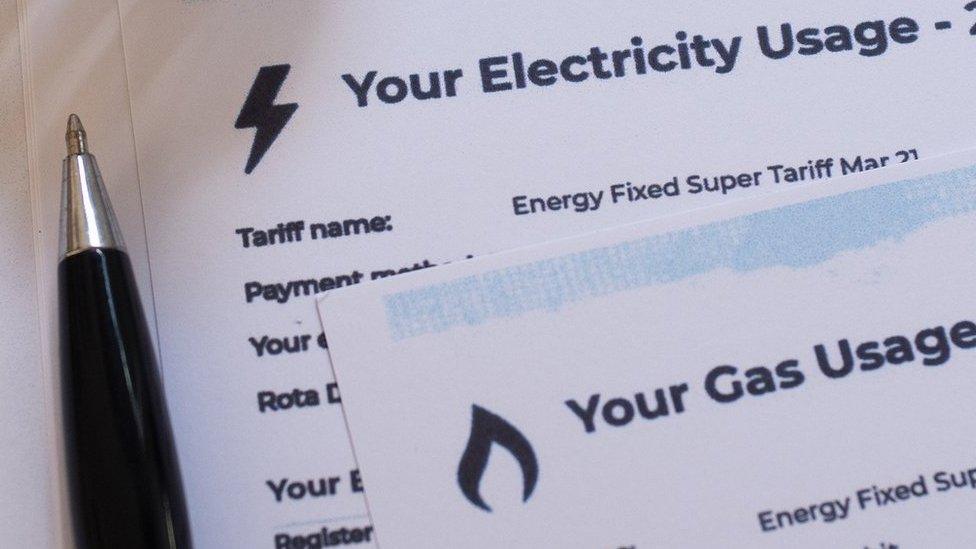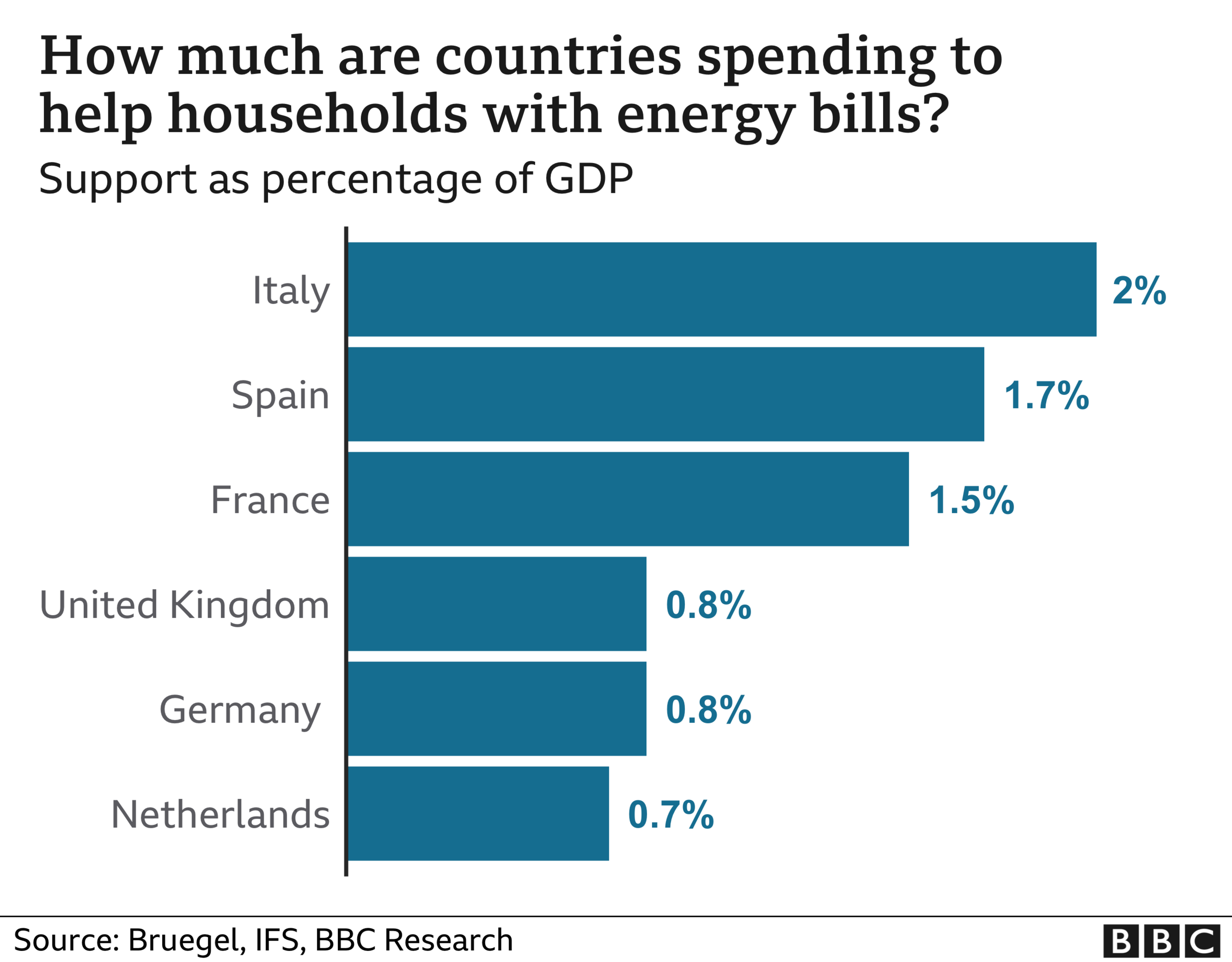Cost of living: Is the government package really worth £37bn?
- Published

Chancellor Rishi Sunak has been outlining a package of measures to support people struggling with the cost of living.
"In total the measures I've announced today provide support worth £15bn - combined with the plans we've already announced that means we are supporting families with the cost of living with £37bn," he told MPs.
The £37bn is a combination of £15bn just announced, and £22bn announced previously, mainly in the chancellor's Spring Statement.
There are some questions about whether the total package is actually worth £37bn.
For example, it includes the savings for households made from raising the point at which people have to start paying National Insurance, which will indeed be a big tax cut from July, but it does not include the amount taken away through tax increases.
The point at which people start having to pay income tax and the higher rates of income tax has been frozen, which means more people are finding themselves having to pay income tax and more people are having to pay higher rates.
Also, National Insurance has gone up by 1.25p in the pound to help fund health and social care.
The Institute for Fiscal Studies calculates that taking account of previously announced tax increases knocks about £18bn from the value of the package, leaving it at £19bn.
The government can't argue that only the cuts from the Spring Statement were included in the £22bn, because the figure also included changes to the taper rate for universal credit, which were announced in the Autumn 2021 Budget. The taper rate is the amount of benefits claimants lose if they earn more money.
The £37bn figure also includes the freeze on alcohol duty, which the government says will save people £3bn over the next five years.
The chancellor also said that the £37bn was "higher or similar to countries like France, Germany, Japan and Italy".
To make the comparison, he expressed the money as a proportion of GDP, which is a measure of the value of the economy - £37bn is 1.5% of GDP; £19bn is 0.8% of GDP.
The Brussels-based think-tank Bruegel has been looking at the amounts that European countries have been spending on supporting households struggling with higher energy prices.
Looking at the European countries the chancellor cited, they found spending of:
France: 1.5%
Germany: 0.8%
Italy: 2.0%
So the IFS's figure would put the UK equal with Germany and considerably behind France and Italy.



